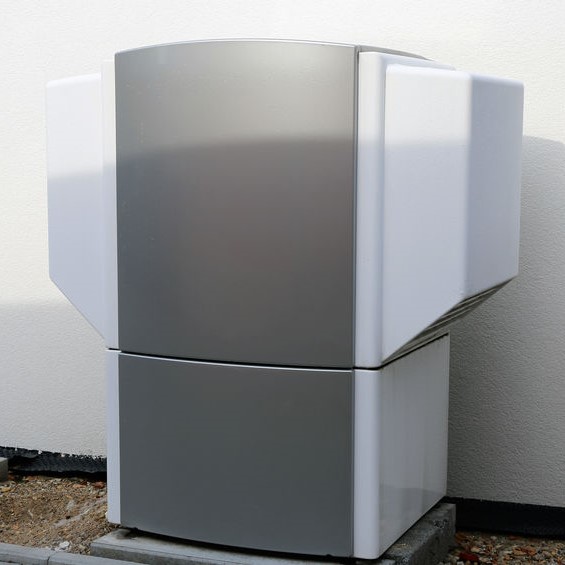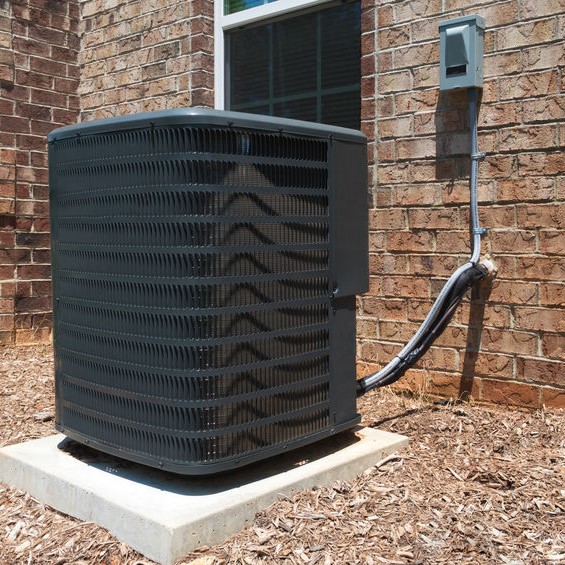
What is a heat pump?
We have electric cars, solar panels, and windmills that generate electricity for our homes. More commercial structures are going with green roofing in a way to minimize the heat island urban effect. So, as we look for better ways to live our lives as comfortably but sustainably, more homeowners are contemplating a heat pump installation.
It is a newer system to cool and heat a home using the natural resource of the Earth’s heat. So, the name ‘heat pump’ is somewhat confusing. With a heat pump installation, your home will be cooled or heated from the never-ending supply of heat inside the Earth’s core. How? A heat pump doesn’t generate heat, instead it absorbs heat from inside the earth and when it is in the heating mode, transfers that heat indoors.
Likewise, a heat pump installation can provide your home with air conditioning too. When the heat pump system is in the cooling mode, it cools the air through an outdoor component and then send it indoors. In general, it is pumping the heat out of the Earth and transforming it as dictated by the thermostat setting.
What is cheaper to run a heat pump or gas furnace?
The initial upfront cost and installation of a gas furnace is less expensive than a heat pump installation. Yet, if you are looking for a way to cool and heat your home, in addition to the furnace installation, you’ll still need to source a way to cool your home.
With a heat pump installation, you’re getting both a way to cool and heat your home with one installation. When the utility bills come in each month afterward, you’ll see the savings that a heat pump installation provides.
With that being said, it is important to realize that your needs aren’t the same as your neighbor’s needs, nor is living in Maryland the same as living in Arizona. What we mean is that deciding the best method for cooling and heating your home, these two general recommendations can provide you some guidance in deciding if a heat pump installation is right for your home:
A heat pump, A mild climate: In areas where the winters are mild and temperatures average between 30 to 40 degrees Fahrenheit, a heat pump installation would be perfect.
A cold climate, A furnace: In areas where the winter can be a bitter cold most days with below freezing temperatures, a furnace is the better choice because it doesn’t rely on the Earth’s temperature. When the ground is covered in snow for days, weeks, maybe a month or more, the Earth’s temperature isn’t going to be warm.
Where should I place my heat pump?
The location for a heat pump installation is key to the system working efficiently. It will keep the operating costs down, extend the lifespan of the heat pump and be less obtrusive to your neighbors.
The outdoor unit of the heat pump is considerably more susceptible to the elements, just a like the outdoor component of an HVAC system. It isn’t anything that isn’t manageable to work with though. Things to take into consideration for the outdoor component of your heat pump installation is the climate, the local weather, and your immediate surroundings (busy city street, a bedroom community, or by the ocean).
Factors that should be considered with an exterior component of a heat pump installation:
- Ventilation: For a heat pump to work efficiently, it needs an open area that gets fresh air constantly. It should not be installed in the attic, a closet, or the garage. It must have fresh air at all times and should not be any closer than three feet to a wall and no less than four inches above the ground. A concrete base is recommended that is a vibration-proof base.
- Maintenance: The outdoor unit of a heat pump installation should be placed where accessibility is easy for maintenance service. It should not be installed near any bushes, flowers, shrubs, trees, or any other large equipment.
- Surroundings: As mentioned above, keep plants and other growths away from the outdoor component of your heat pump installation, nothing closer than eighteen inches. Do not mow or weed eat next to the unit so that it doesn’t block the airflow. Avoid installing near dusty driveways and roads. Do not install close to bedroom windows (yours or your neighbors), a fence can be built around the unit as long as there is a three-foot space around the unit.
- Weather: Do have your heat pump installation where it will be in direct sunlight.
- Sea Exposure: Coastal conditions, on the beach near an ocean or sea are vulnerable areas for heat pump installation. The salty air can cause frequent breakdowns from corrosion. There is coating available and your heat pump dealer can discuss that option with you. There is a ground-source style heat pump as well.
The indoor unit of a heat pump installation is important as well. There are three options for the indoor component. Which is best depends on the layout of your home and your needs.
- The wall-mount is the most common with the ductless mini-splits. This style of mounting provides superb coverage with moving air efficiently, but it does take a considerable amount of space.
- The ceiling-mounted type of heat pump installation is typically found in hallways and provide great coverage with the air going in multiple directions but at lower airflow. Ceiling-mounted heat pump installation takes longer than a wall-mounted option.
- The floor-mounted heat pump installation is not popular and takes longer than the ceiling-mounted option. They are more expensive for installing, but if the ceiling and wall space is limited, it is an option.
Is it worth installing a heat pump?
A heat pump installation will be a system equivalent to a same size air conditioner. A heat pump won’t lose any power when it is heater mode, and when it comes to cooling your home, it provides superior cooling. When a heat pump installation is replacing a 10 to 15 year old air conditioner, it will have less operating costs and cooler air in comparison.
Electric heating wastes energy during on winter nights that are short but chilly. A heat pump only uses electric power for transferring the heat, not creating it, and distributing it. With this process, a heat pump is up to four times more energy efficient over an electric furnace.
What are the disadvantages of a heat pump?
As we have covered here, comparing a Heat pump vs central heating system, the heat pump has great benefits. Like anything though, a heat pump installation has some draw backs too:
- Upfront cost is high but has a long term ROI and reduces the footprint of carbon emissions.
- Install is difficult, starting with required research of heat movement, local geology, and meeting specific cooling and heating requirements for your home.
- Sustainability is still concerning because of environmental impact of the fluids used for heat transfer.
- Heat pump installation requires a significant amount of work and can be disruptive to your home and garden.
- Cold weather is not friendly on heat pumps. Because a heat pump requires electricity, it isn’t 100% carbon neutral, but they are compatible with solar application.

On Heat Pump Installation
A popular question about anything that cost money to have done, heat pump installation isn’t any different. so, are heat pump installations hard? Can you install a heat pump yourself? The answers in order asked are not really and yes, with some assistance. Yes, knowing How to heat pump installation is one advantage a contractor will have over you doing it yourself, but there are advantages, the big one being money saving.
Some things to keep in mind when you do your own heat pump installation: You’ll need a professional to install the refrigerant. To transfer the heat from the heat pump, it needs refrigerant. Refrigerant still needs to be purchased and installed by a licensed professional. The other thing is the warranty of the heat pump unit. The manufacturer may not honor the warranty if the heat pump installation was not done by a certified, licensed, professional. Call (410) 921-1277 with Rocky HVAC today for your heat pump installation in Severn and Baltimore, MD.

